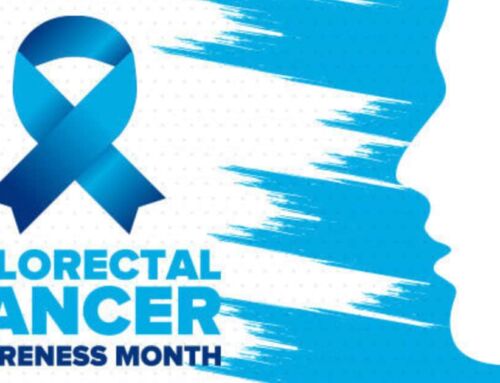When you think about aging, you’re likely struck with thoughts of wrinkles, greying hair, and wondering where these pesky extra pounds came from. So it might come as a surprise to realize that the process of aging is happening just as much on the inside of your body as it is on the outside.
It’s true, growing older changes more than your physical appearance. It also has drastic effects on the health of your gut. But don’t let that scare you, there are plenty of things you can do to improve the health of your gut to ultimately keep your digestive system running like it did when you were in your twenties.
Today we’re going to explore how and why gut health changes with age. We’ll also cover what you can do to reduce your risk of age-related gastrointestinal disorders to not just keep your gut health in check, but also to improve your total body health. And finally, we’ll conclude with when you should make an appointment with your gastroenterologist to tackle your digestive issues.
How Your Gut Health Shifts With Age
As you get older, your digestive system goes through various shifts, which can affect the overall health of your gut and body as a whole. Your gut microbiome goes through critical changes during both your early years of life and your later years of life. This causes the immune system to be weakened and less stable during these crucial periods.
One study evidenced this by stating that “our microbiota and health develop and age hand-in-hand.” As you can see, you must encourage and nurture a healthy gut now to have a happier and healthier aging experience. With that said, here are a few areas where changes occur that impact your gut health as you get older.
Stomach Acid
As you age, you may experience a significant reduction in stomach acid. This is a natural part of aging for many, with those over the age of 65 having the highest risk.
A decreased production of stomach acid can cause the following potential side effects:
- Ibuprofen or other medications may become challenging to consume
- Bloating
- Mineral deficiencies
- Diarrhea
- Flatulence
- Nausea
- Intestinal infections
- Undigested food in stool
Bowel Motility
The process of growing older also causes your bowels to work slower than they used to. Because the bowel contractions which move digested food through your intestines aren’t as strong, food moves more slowly through the colon.
Decreased bowel motility can lead to the following:
- Constipation
- Gastroesophageal reflux disease (GERD)
- Nausea
- Abdominal pain
- Bloating
- Straining with stools
Digestive Enzymes
Reduced digestive enzymes are another example of natural changes to the digestive system caused by aging. When this occurs, your body has difficulty absorbing nutrients from foods. This can lead to the following:
- Weight loss
- Diarrhea
- Loss of appetite
- Excessive gas
- Cramping
Gut Immunity
Your immune system becomes less effective with age due to the associated changes in microbes in your gut. Immunity and your microbiome go hand in hand, which is why it’s important to keep your gut health in tip-top shape to increase the effectiveness of your immune system.
Changes in your gut that alter your immune system can cause:
- Increased risk of infections
- Decreased nutrient absorption
- Autoimmune disorders
- Crohn’s disease
- Celiac disease
- Ulcerative colitis
Microbiome
The human microbiome is made up of over 100 trillion microbes weighing in at about five pounds. As you age, your microbiome is vitally important to your gut health. It’s truly the cornerstone of good health and is responsible for:
- Producing essential vitamins (B, B12, K, and riboflavin) needed for coagulation
- Helps digest food
- Protects against bacteria causing disease
- Regulates immune system
- Reduces inflammation
The NIH indicates that a significant alteration in gut microbiota occurs in older adults in comparison to young, healthy people. These changes are due to several reasons, including:
- Changed lifestyle and dietary schedule
- Lesser mobility
- Weakened immune strength
- Reduced intestinal and overall functionality
- Altered gut morphology and physiology
- Recurrent infections and hospitalizations
- Certain medications
5 Ways to Improve Gut Health as You Age
Now that we know that a modified microbiome, less stomach acid, and weakened gut immunity can be tied to age-related changes, let’s explore ways to counteract these unwanted modifications.
1. Exercise
Studies have shown that regular exercise promotes a healthier, more diverse microbiome. In addition, regular exercise reduces your risk of colon cancer while improving intestinal elimination and motility. This leads to more regular bowel movements.
Exercise has a robust list of benefits outside of gut health, including a decreased risk of heart disease, diabetes, and obesity. So at the end of the day, it’s up to you to decide if just 30 minutes per day of exercise is worth a longer and more invigorating life. For me, it’s a no brainer – fitting exercise into your daily routine is essential.
2. Nutrition
Keeping your nutrition in check doesn’t just make you feel and look better; it has a substantial impact on your gut health also. You can take the reigns on your food intake by:
- Increasing prebiotic fiber intake
- Asparagus
- Garlic
- Onions
- Oats
- Decreasing sugar and fat intake
- Eating a wide variety of foods
- Drinking at least eight glasses of water per day
- Eating fermented foods
- Avoiding processed foods and artificial sweeteners
- Increasing consumption of fruits and vegetables
3. Digestive Enzymes
These enzymes lower the amount of energy we need to transform our food into small molecules. While our body naturally produces these enzymes, it’s common for this production to reduce with age. To learn more about if you should consider taking a supplement, please read our article on digestive enzymes.
4. Antibiotics
Although antibiotics do have an important role in combating bacterial infections, overuse can damage the gut microbiota and immunity. It’s just important to work with your doctor to discuss alternative options and not to overuse antibiotics.
5. Sleep
People who have chronic insomnia report more symptoms of poor digestion than those who get adequate amounts of sleep. While research is still up in the air concerning if poor sleep causes gastrointestinal disorders or if these digestive disorders cause poor sleep, there is a clear correlation between the two.
The bottom line here is that getting at least 7-8 hours of uninterrupted sleep has clear benefits for your digestive system.
Digestive Health Maintenance
As we grow older digestive system disorders can arise. The good news is that we can lower our risk of developing some conditions with an awareness of symptoms and proper planning. Some common disorders to look out for include:
- Colon Cancer – Having your first colonoscopy is recommended at age 50 by the American Gastroenterological Association and by 45 years of age by the American Cancer Society. The key to beating colon cancer is early detection, so please discuss it with your doctor when you should be screened. Factors such as ethnicity and family history can dictate an earlier screening age.
- GERD – This is a chronic condition that occurs when gastric juice, bile, or stomach acid reflux from the stomach up into the esophagus. While anyone can get GERD, it is more common in older adults due to the muscle, lower esophageal sphincter (LES), that blocks stomach acid from entering the esophagus relaxing on a more frequent basis. Also, the weakening of the LES can cause those older adults with a hiatal hernia to develop GERD as well.
- Liver Disease – Older adults that are overweight, diabetic, or have high triglycerides are at greater risk of non-alcoholic fatty liver disease. When our bodies store excess calories/fat it stores them in the liver as well, and this can lead to fatty liver and chronic liver damage. Controlling these risk factors can prevent and even reverse fatty liver disease.
- Constipation – The risk of developing illness can be avoided as we age by including high fiber foods into your diet, exercising, increasing water intake, and creating a regular schedule for bowel movements.
Create a Plan to Keep Your Gut Health in Check
The above content is meant to educate and bring awareness to potential digestive issues as we grow older. I hope that you’ll go forward with making adjustments on your own or help an elder loved one, and then discuss the changes you’ve identified with your doctor. Together you’ll be able to create a solid plan for prevention and put yourself in a good position for success.
If you’re uncertain about where to start or have concerns about a digestive issue you’re facing, give my office a call at (210) 615-8308 or schedule online. There are so many ways you can improve your digestive health – and your gut will thank you for it!






